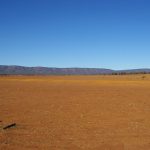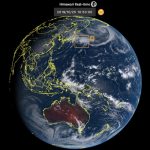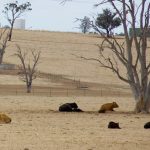 December 11, 2019 2:54 am
Published by Climate Extremes
December 11, 2019 2:54 am
Published by Climate Extremes
Since 2016 CMS has helped Centre’s researchers and students publish data using the NCI data services. Here, researchers talk about their own experiences with the publication process of their data and code at NCI and Zenodo.
 December 8, 2019 5:31 pm
Published by Climate Extremes
December 8, 2019 5:31 pm
Published by Climate Extremes
Lina Teckentrup reports on the 11th Annual Summer Course in Flux Measurements and Advanced Modelling held during July 2019 at Niwot Ridge, Colorado.
 December 7, 2019 12:00 pm
Published by Climate Extremes
December 7, 2019 12:00 pm
Published by Climate Extremes
After a very useful poll, the ECR Committee brought in some great experts who taught them art of time management, how to say no, and how to beat back imposter syndrome.
 December 7, 2019 9:00 am
Published by Climate Extremes
December 7, 2019 9:00 am
Published by Climate Extremes
The drought program explains what is unusual about the current drought in Australia and in examining flaws in the Aridity Index explores how drought may change in the future.
 December 7, 2019 5:00 am
Published by Climate Extremes
December 7, 2019 5:00 am
Published by Climate Extremes
The Knowledge Brokerage Team has existed for a little over a year and it’s timely to reflect on some of the activities the team has been involved in.
 December 7, 2019 4:00 am
Published by Climate Extremes
December 7, 2019 4:00 am
Published by Climate Extremes
CLEX Graduate Director Melissa Hart summarises the resources and opportunities we have available via our researcher development program.
 October 25, 2019 11:31 am
Published by Climate Extremes
October 25, 2019 11:31 am
Published by Climate Extremes
While the data from Himiwari-8 provides very useful data on clouds at relatively high resolution, researchers need to know if it produced any biases, particularly around cloud-top height and cloud-top temperature, whose roles are critical in shaping Earth’s climate. CLEX researchers and Australian colleagues compared the Himawari-8 data for both of these measures with existing datasets.
 October 22, 2019 2:26 pm
Published by Climate Extremes
October 22, 2019 2:26 pm
Published by Climate Extremes
The energy of vortices in the Southern Ocean has increased over the past two decades due to an increase in the mean amplitude of the vortices rather than an increase in their number.
 October 22, 2019 1:26 pm
Published by Climate Extremes
October 22, 2019 1:26 pm
Published by Climate Extremes
A new study with Centre of Excellence researchers warns that changes in springtime winds high above the South Pole could trigger higher than usual heat waves and fire-prone weather conditions in Australia.
 October 21, 2019 12:07 pm
Published by Climate Extremes
October 21, 2019 12:07 pm
Published by Climate Extremes
This paper documents the efforts of the international weather data rescue initiative ACRE, the International Surface Temperature Initiative and researchers that took part in workshops held in Bern, Switzerland, in June 2018 to rescue and digitize meteorological measurements taken prior to 1850 from around the world.










